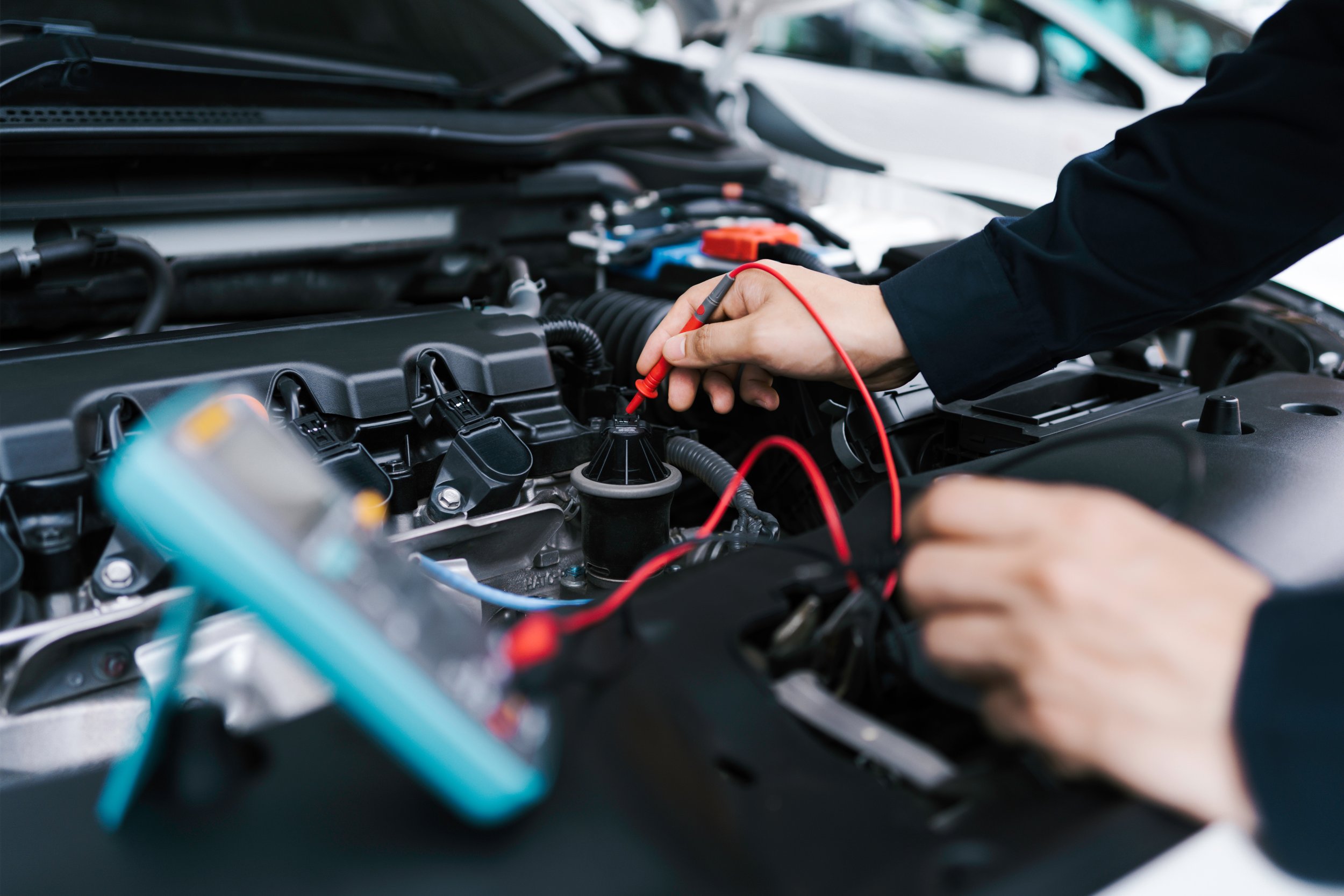
ELECTRICAL DIAGNOSIS &
REPAIR
WHY ELECTRICAL DIAGNOSIS REPAIRS ARE IMPORTANT?


WHY ELECTRICAL DIAGNOSIS REPAIRS ARE IMPORTANT?
Critical Systems: Modern vehicles rely heavily on electrical systems to operate essential functions, including the engine control unit (ECU), transmission control, fuel injection, and ignition systems. Electrical issues can impair these critical systems, leading to poor vehicle performance or complete failure.
Comfort and Convenience: Electrical systems power a wide range of features such as air conditioning, infotainment systems, power windows, and seats. Properly functioning electrical systems ensure these features work reliably, enhancing comfort and convenience.
Lighting: Headlights, brake lights, turn signals, and interior lights are all powered by the electrical system. Malfunctions in these components can compromise visibility and signaling, increasing the risk of accidents.
Safety Features: Modern vehicles are equipped with numerous safety features like airbags, anti-lock brakes (ABS), traction control, and electronic stability control (ESC). These systems rely on electrical components and sensors. Electrical issues can disable or impair these safety features, compromising vehicle safety.
Battery and Charging System: The battery and alternator are crucial for starting the vehicle and powering electrical systems while driving. Problems with the charging system can lead to a dead battery, leaving you stranded.
Avoiding Compounded Issues: Electrical problems can be symptomatic of deeper issues that, if left unchecked, can lead to more significant damage. For example, a short circuit can cause damage to the vehicle’s wiring harness or electronic control modules.
Protecting Components: Electrical malfunctions can cause undue stress on various components, potentially leading to their premature failure. Timely diagnosis and repairs prevent further damage and additional repair costs.
Optimal Performance: Electrical systems control many performance-related functions, such as fuel injection, ignition timing, and transmission shifting. Electrical issues can lead to reduced engine performance, decreased fuel efficiency, and poor handling.
Diagnostic Accuracy: Modern vehicles use onboard diagnostics (OBD) to monitor and report issues. Electrical problems can interfere with these diagnostic systems, making it harder to identify and address other mechanical issues accurately.
Preventing Expensive Repairs: Identifying and fixing electrical issues early can prevent more extensive and expensive repairs. For example, a simple battery issue, if left unresolved, can lead to alternator failure.
Energy Efficiency: Well-maintained electrical systems operate more efficiently, reducing the overall load on the vehicle’s battery and alternator. This can extend the life of these components and reduce energy consumption.
Reliability: Knowing that your vehicle’s electrical systems are in good working order provides peace of mind. You can drive confidently, knowing that critical functions and safety features are reliable.
Avoiding Inconvenience: Electrical problems can lead to inconvenient breakdowns or failures of comfort and convenience features. Regular electrical maintenance minimizes these disruptions.
